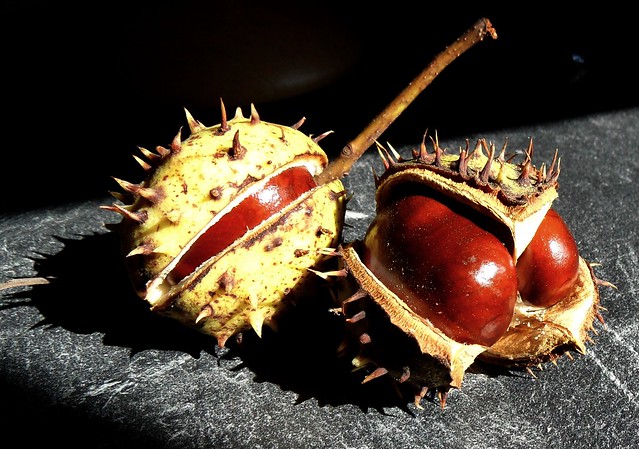dehiscent /də-HISS-ənt/. adjective. Gaping. Rupturing. Ripe to bursting. From Latin dēhiscĕre (gape, yawn).
“…I cannot begin to tell you how strange the sentences with their riders and enclosures of information were to me, how blank they seemed, and then as if blankness were dehiscent in some mind garden, the blankness split open and was vague with not quite credible scenes…” (Harold Brodkey)
“Anthers loosely hairy or glabrous, the divaricate cells dehiscent from the base nearly to the summit, but not expanded.” (Guy Davenport)
“I think of his earlier compositions where into the body of the musical statement he incorporates a punctuation of dehiscence, flottements, the coherence gone to pieces…” (Samuel Beckett)
“…I stitched the dehiscent wound as he yelped in pain, telling myself he’d had it coming. ¶ Nobody has it coming.” (Paul Kalanithi)
“That plain casket gone deep in earth, while the other stood a man’s height above the earth, anticipating dehiscence, ready to shell in falling…” (William Gaddis)
“The pollen sacs of the nettles were ripe, and every now and then the vigil would be enlivened by the dehiscence of these, the bursting of the sacs sounding exactly like the crack of a pistol…” (H.G. Wells)
“…Una had become aware of an uncontrollable and ill-placed dehiscence in the stuff of her gossamer. The dread lest this should come to a head as she braced herself to receive her foul little sister’s gloves and bouquet, over and above an habitual misanthropy aggravated by the occasion, had made her, and hence her team of maids, appear as cross as two sticks.” (Samuel Beckett)




